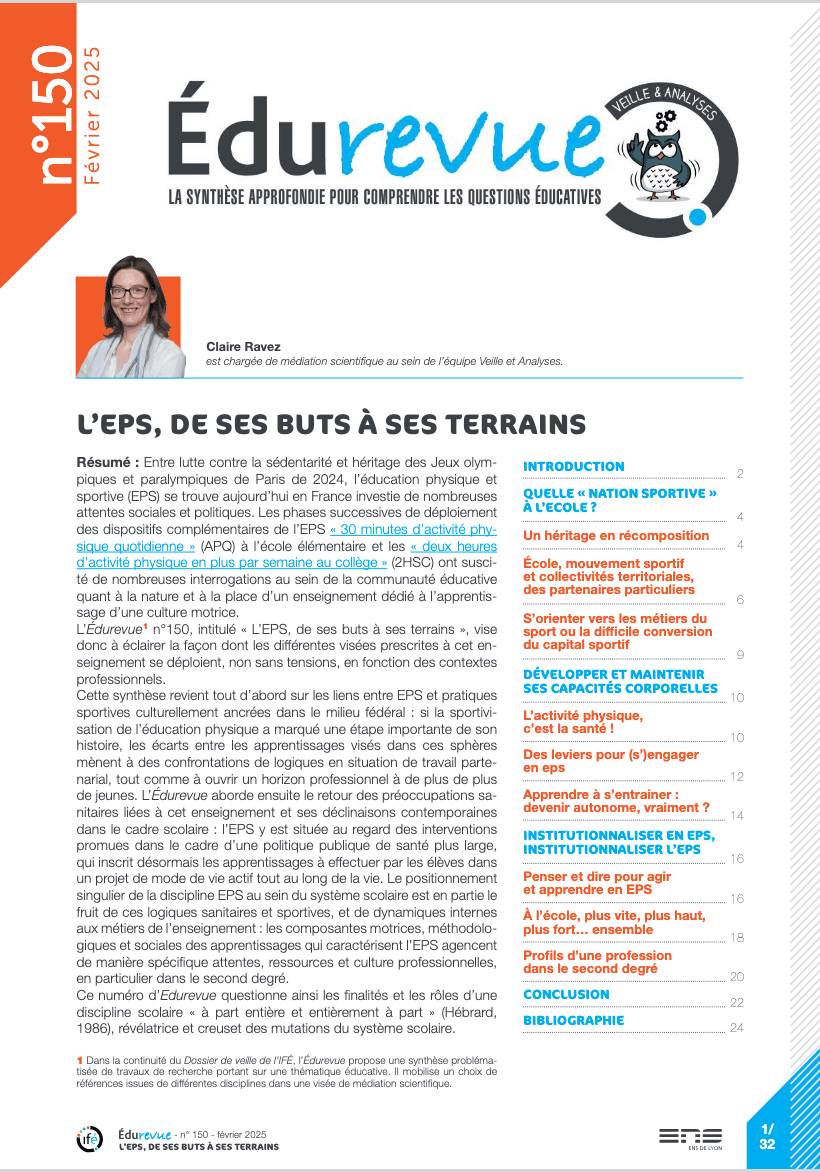A qui confier son enfant ? : la prise en charge de la petite enfance au fil de trois générations en France et en Pologne
Auteur(s) : PAWLOWSKA Aleksandra
Date de soutenance : 2010
Thèse délivrée par : Université Paris-Descartes
Section(s) CNU : section 70 : Sciences de l'éducation
Sous la direction de : Régine SIROTA
« Cette thèse porte sur la pratique sociale de la prise en charge de la petite enfance en France et en Pologne, appréhendée dans une perspective intergénérationnelle et sociohistorique. Une enquête tri-générationnelle sur la question a démontré un usage différencié des solutions d’accueil : en France, la crèche est considérée comme un lieu de socialisation, en Pologne, elle reste associée à la notion « abandon » et au « mauvais substitut maternel ». L’enfant est de préférence confié à ses grands-parents, recours également présent en France, mais circonscrit dans le temps et apparaissant en complémentarité d’autres modes d’accueil. Les différences entre ces pays s’expliquent par les facteurs historiques, idéologiques et sociaux, liés aussi bien aux histoires nationales qu’aux systèmes de valeurs. Le rapport à la garde du jeune enfant ne se réduit pas seulement à l’appartenance socioprofessionnelle ou à l’investissement maternel. La conception du jeune enfant et des responsabilités parentales façonne les politiques publiques et les pratiques de garde. Les conceptions du bien-être de l’enfant en Pologne, fondées sur des besoins psychoaffectifs discréditent l’accueil collectif. Elles s’inscrivent dans une conception de la famille et de la féminité qui se confond avec la maternité. En France, sous l’influence conjuguée du discours savant, des nouvelles pratiques, qui requalifient l’accueil collectif, le bien-être de l’enfant est structuré sur une conception des besoins socioculturels, reconnaissant le bien-fondé de sa socialisation précoce et favorisant la séparation d’avec la mère. »
Abstract
Who is supposed to care of the child ? : the early chilhood care throughout three generations in France and in Poland
« The present thesis explores the social practice of the early childhood care in France and in Poland, understood in an intergenerational and a socio-historical perspective. A tri-generational survey on the issue showed a differentiated use of solutions of care: while in France, the daycare center is considered as a place of socialization, in Poland it is still associated with the notion of “abandonment” and of “bad maternal substitute”. The child is rather entrusted to its grandparents, a solution also used in France, but limited in time and appearing complementary to the other types of childcare. The differences between these countries can be explained by the historical, ideological and social factors, linked as well to the national histories as to the value systems. The attitude toward the care of the young child cannot only be limited to the socio-professional membership or to the maternal investment. The conception of the young child and the parenting shapes the public policies and the practices of care. In Poland, conceptions of child well-being, based on psycho-emotional needs discredit the collective care. They lie within a conception of the family and the femininity, which merges with the maternity. In France, under the combined influence of the scholarly discourse and the new practices, which requalify the collective childcare, the child well-being is structured on a conception of the socio-cultural needs, recognizing the merits of its early socialization and favoring promoting the separation from the mother. »
mot(s) clé(s) : comparaison internationale, parents et familles, petite enfance et pré-primaire (ou école maternelle)












